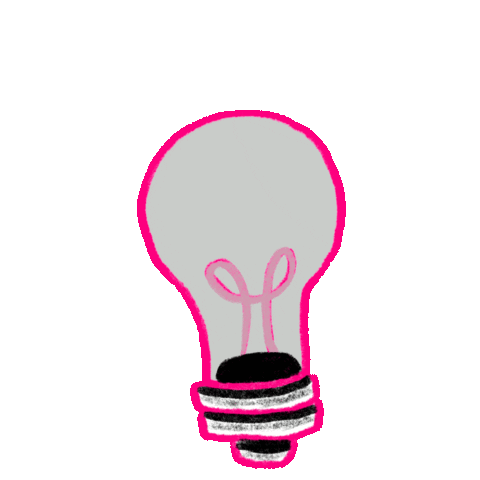
My Learning Philosophy
Jean Piaget once said, “Every time we teach a child something, we keep [them] from inventing it [themselves]. On the other hand, that which we allow [them] to discover for [themselves] will remain with [them] visible for the rest of [their] life.”
Although I am only in my second year of teaching, I have been a learner since I was born! I have spent exactly 8,760 days learning something new every day. As a learner, some things have been easy to learn and other things have been more difficult and challenging- just as it should be. Learning is fun and something I am passionate about! School was always something I looked forward to. I know that when I learn, I am bettering myself. I see myself as a lifelong learner. As a learner:
-
I am intrinsically motivated to learn new things and problem solve real world circumstances.
-
I thrive when I can connect content to my life experiences.
-
I love when information is organized, follows patterns/rules, and has a specific process.
-
I learn best when I am able to collaborate with others and see multiple perspectives of a topic/situation. Learning from others allows me to “broaden my horizons”!
Throughout my short 23 years of life, I have gained many life experiences that influence how I think about learning. I believe that learning comes in many different ways. Sometimes learning is purposeful for a specific reason (e.g., learning to drive, learning to do surgery, etc.), other times learning may happen “accidentally”. Some learning requires learning from a teacher versus other types of learning that requires a learning facilitator. According to Harapnuik (2019), “a teacher is a person who imparts knowledge or skill through instruction or example while a learning facilitator is one who creates an environment in which someone can come to know something, acquire knowledge, or to gain information and experience.” Although learning can come in many different ways and serve multiple purposes, I do believe the following aspects of learning are true no matter the situation:
-
Every learner learns differently.
-
Everyone has the ability to learn. Teachers/learning facilitators have to find what will meet their needs of their students in order for them to be successful individually.
-
Learning is a lifelong process that is never ending.
Teaching and learning are complex processes. Learning happens when learners use their current and past experiences and knowledge to create new ideas and connections with the content. But how do teachers make learning happen? The answer is they can’t “make” it happen. As a facilitator of learning, it is important to create a significant learning environment that allows learners to feel safe when collaborating with others, ask questions, make meaningful and purposeful connections, and provides opportunities for discovery. Right now, education is focused on the standardization of learners. This has enabled and forced a “linear” way of teaching instead of a complex journey of learning. The relationship between teaching and learning need to be synonymous with one another- they have to work together in order to serve the greater purpose of igniting the passion for learning and skills to be lifelong learners.
When thinking about who I am as a learner, how I view learning in general, and the relationship between teaching and learning, I am able to connect with the Cognitive Constructivist learning theory with a very slight connection to the Connectivism learning theory. I believe a person's experiences influence what theory they connect with, and since everyone learns differently, there is no possible way for me to connect with solely one. I have had specific experiences that have shaped how I view and connect with learning.
I connect with the Cognitive Constructivist learning theory because I believe that in order to learn, learners must be engaged in their learning. They have to be invested, passionate, and motivated in order to truly be present in the on-going learning process. Jean Piaget’s Cognitive Constructivism theory is based on the idea that people learn and form ideas based upon their previous experiences being incorporated with their new experiences. According to Piaget’s Theory of Constructivism, Cognitive Constructivist learning theory must have teachers who “challenge the student by making them effective critical thinkers and not being merely a ‘teacher’ but also a mentor, a consultant, and a coach” (n.d.).
I also connect with the Connectivism learning theory because it focuses on the following principles addressed by Siemens (2005):
-
Learners can learn from a variety of opinions and resources (a learning network).
-
Learners can learn from technology devices or “non-human appliances”.
-
Learners need to make and nurture the connections they have in order to continue their learning.
-
Learners can learn across disciplines and with multiple perspectives on a specific skill or concept.
-
Learners need to be able to make appropriate decisions when in their learning process. With the overwhelming amount of sources online, it is important to be able to choose your information wisely. Learners must also understand that information they find, has the ability to change due to it being online.
Especially during this school year during the COVID-19 pandemic, it has “forced” a shift to incorporate a vast amount of technology when teaching and learning. This has allowed me to connect with the Connectivism learning theory in a way I never would have imagined.
I believe that my learning philosophy and teaching philosophy must match with one another. I truly believe that this is how meaningful learning happens, so I need to give my students the opportunity to learn this way too. I wouldn’t be giving them the best education otherwise. Although I believe my learning and teaching philosophies should match, I do think they have some differences. A learning philosophy focuses on how a learner learns, where a teaching philosophy is focused on how a teacher facilitates learning. Without knowing my learning philosophy, it would be difficult to have a strong foundation for my teaching philosophy.
As I combine my learning and teaching philosophies together, I know I will be able to better meet the needs of my students. I will be able to provide them with a significant learning environment that fosters choice, ownership of learning, and voice through authentic learning (COVA). With the implementation of my innovation plan of a Blended Learning model, my learning and teaching philosophies will be brought to light and influence my plan significantly!
Though these are my current philosophies of learning and teaching, it is important to note that they may change in the future. Since education is constantly evolving and I am constantly learning and growing- I know my philosophies will as well. Everyone learns differently, but we all have the power to be lifelong learners!
References:
Harapnuik, D. (2019, February 20). Learning philosophy. Retrieved November 28, 2020, from http://www.harapnuik.org/?page_id=95
Piaget's Theory of Constructivism. (n.d.). Retrieved November 28, 2020, from https://www.teach-nology.com/currenttrends/constructivism/piaget/
Siemens, G. (2005). Connectivism: a learning theory for the digital age. International Journal of Instructional Technology & Distance Learning, 2, 1st ser.



